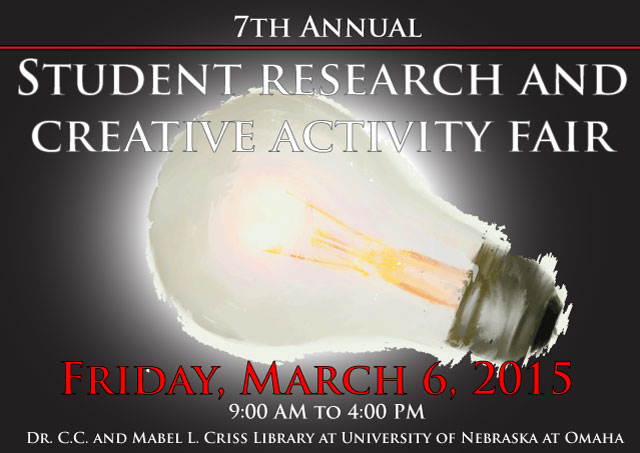
Post-translational modification bias and organism complexity
Advisor Information
Dhundy Bastola
Location
UNO Criss Library, Room 112
Presentation Type
Oral Presentation
Start Date
6-3-2015 1:30 PM
End Date
6-3-2015 1:45 PM
Abstract
A protein post-translational modification (PTM) is a cellular mechanism that enables certain proteins to perform specialized tasks in a cell. There are many different types of natural PTM and they preferentially affect one amino acid over other in a protein. In our work, we are particularly interested in the protein response to various types of stress conditions in cells. It is our hypothesis that environmental stresses influence PTM-bias and may suggest a preference for PTM activity across the proteins of a given organism. To test this hypothesis, we analyzed the protein content from phylogenetically distinct organisms for the presence of PTM, its type and the amino acid target of this PTM. Our result suggests, PTM bias exists and it is unique to each organism. Across the mitochondrial and non-mitochondrial proteins of 11 organisms, the result indicates a strong bias, which is pronounced with the increasing complexity of organization of the living organism. Our work suggests that PTM bias and diversification may likely have been directed by an organism's environmental stress conditions.
Post-translational modification bias and organism complexity
UNO Criss Library, Room 112
A protein post-translational modification (PTM) is a cellular mechanism that enables certain proteins to perform specialized tasks in a cell. There are many different types of natural PTM and they preferentially affect one amino acid over other in a protein. In our work, we are particularly interested in the protein response to various types of stress conditions in cells. It is our hypothesis that environmental stresses influence PTM-bias and may suggest a preference for PTM activity across the proteins of a given organism. To test this hypothesis, we analyzed the protein content from phylogenetically distinct organisms for the presence of PTM, its type and the amino acid target of this PTM. Our result suggests, PTM bias exists and it is unique to each organism. Across the mitochondrial and non-mitochondrial proteins of 11 organisms, the result indicates a strong bias, which is pronounced with the increasing complexity of organization of the living organism. Our work suggests that PTM bias and diversification may likely have been directed by an organism's environmental stress conditions.
